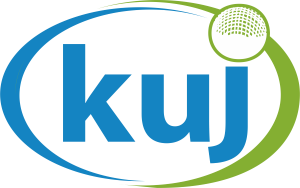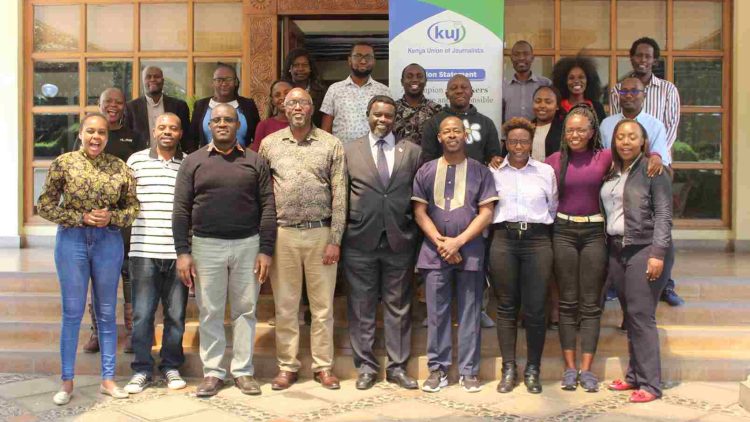Young Kenyan Journalists Attend Strategic Union Workshop
On December 15 and 16, 2022, young journalists from across Kenya gathered in Nairobi for a two-day workshop on strategic union building.
The workshop was organized by the International Federation of Journalists (IFJ) and its affiliate, the Kenya Union of Journalists (KUJ), under the Union to Union (UTU) project.
The workshop brought together 20 young journalists from Nairobi, Kisumu, Kilifi, Kakamega, Bungoma, and Uasin Gishu counties.
Themed, “The Digital Economy and African Journalists’ Unions; Developing Strategies for Youth Recruitment into the KUJ,” it aimed to engage young journalists in a strategic union-building process and empower them by building their capacities in trade union development issues.
At the end of the workshop, it was intended that the beneficiaries would play a critical role in helping the KUJ recruit their peers, with a focus on those working online. Young journalists would also contribute to the union reform process and adapt to the changing economic structures of the media industry.
During the workshop, several key speakers and presenters facilitated the sessions, including Secretary General of the KUJ Eric Oduor, Director of the IFJ Africa Office Pa Louis Thomasi, Industrial Relations Officer at the Central Organisation of Trade Union (COTU – Kenya) Anthony Githinji, and Legal Officer KUJ Ibrahim Oduor.
One of the emerging issues discussed at the workshop was how technology is disrupting the media industry. In his IFJ solidarity statement, Mr. Pa Louis Thomasi stated that whatever is happening in the media and journalism landscape “is not a crisis,” noting that with the internet and emerging technologies, there has been a radical shift that has had an impact on the industry.
The sentiments were corroborated by Mr. Eric Oduor. Changes to the advertising revenue model have led to a rise in social media and tech companies, and consequently, many journalists are being laid off without proper compensation. Mr. Eric said that the union remains firm to its vision of “A champion of workers’ rights, free and responsible media,” securing and protecting the welfare and interests of its members.
The workshop also observed that many of the problems that led to the formation of unions remain the same. Mr. Thomasi cited employers denying workers contracts, poor wages, lack of social security, unpaid leave, job insecurity, and other forms of exploitation as ongoing issues. Subsequently, journalists in Kenya and Africa often fail to unionize due to fear of reprisals from their employers, ignorance of the benefits of being a union member, and lack of capacity and strategy to organize journalists in the digital sector.
Mr. Anthony Githinji explained why emerging issues are disrupting the union sector in his presentation on “Organizing and recruiting.” Some of these issues include individual contracts replacing Collective Bargain Agreements, the creation of multinational companies that adopt anti-union policies, new government policies within the labour market, and financial resources to recruit.
In addition to these challenges, speakers emphasized that “Freedom of association is not a privilege but a fundamental right,” backed by legislation in Kenya (Article 41) and International Labour Organisation Conventions (87 and 98) that provide workers with fundamental rights.
Mr. Ibrahim Oduor shared insights on “Employment and labour rights in Kenya” and practical ways to address these challenges. He spoke about how the media industry landscape needs to be looked at – Newsroom, online, and outside the newsroom – and underscored the importance of reading and internalizing the Kenya Employment Act.
Overall, this workshop provided an opportunity for young journalists to come together to discuss important issues facing their profession and learn how they can play a critical role in building stronger unions for their peers.

